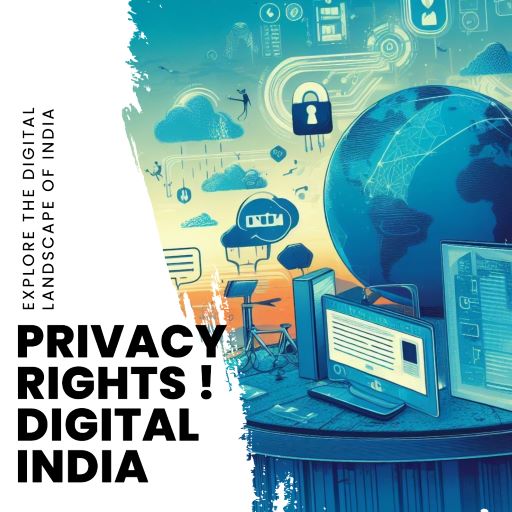Landscape of Privacy Rights in Digital India

The right to privacy is a fundamental right under Article 21 of the Indian Constitution. The landmark judgment in ‘K.S. Puttaswamy v. Union of India’1 established this right. This right allows individuals to control the collection, use, and disclosure of their personal information, safeguarding their liberty, dignity, and security. The right to privacy is also recognized globally, with countries like Switzerland and Iceland enacting strict privacy laws such as the GDPR and DPA.
However, it is not absolute; national security or public safety concerns may easily override privacy. Privacy is relatively recent, coming into the picture in the digital era.
Privacy and data protection are often intertwined. In simpler terms, privacy is essentially about data protection. One could argue that the existence of a right to privacy is due to the presence of risks concerning personal data.
For example, big data poses a challenge, as governments and businesses collect vast amounts of personal information that can be misused to track individuals’ movements, online activities, and surveillance.
This issue arises from three main factors: inadequate regulation, low awareness, and the vast population. India lacks a comprehensive data protection law, even after the significant ruling in ‘K.S. Puttaswamy v. Union of India’ 2. This landmark judgment responded to compromised provisions within the Aadhaar Act3, which permitted the government to collect sensitive data without ensuring adequate storage practices.
In conclusion, the landmark judgment in ‘K.S. Puttaswamy v. Union of India’4 marked a significant milestone in recognizing and upholding the fundamental right to privacy. However, the digital era has introduced new challenges, such as big data and the lack of regulations. By striking a delicate balance between privacy protection and the need for national security, India can navigate the evolving landscape of privacy rights and establish itself as a beacon of privacy safeguards in the digital age.
References
1 K.S. Puttaswamy (Privacy-9J.) v. Union of India, (2017) 10 SCC 1.
2 K.S. Puttaswamy (Aadhaar-5J.) v. Union of India, (2019) 1 SCC 1.
3Aadhaar (Targeted Delivery of Financial and Other Subsidies, Benefits and Services) Act, 2016.
4 K.S. Puttaswamy (Privacy-9J.) v. Union of India, (2017) 10 SCC 1.

